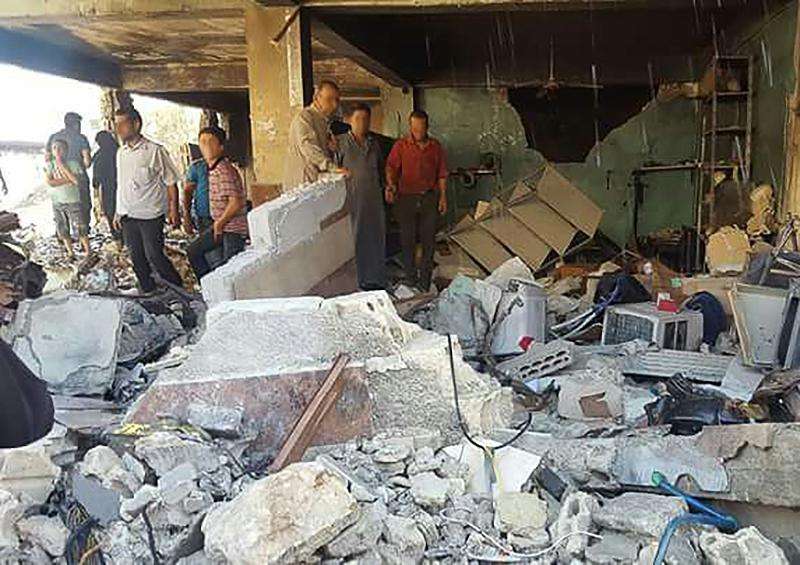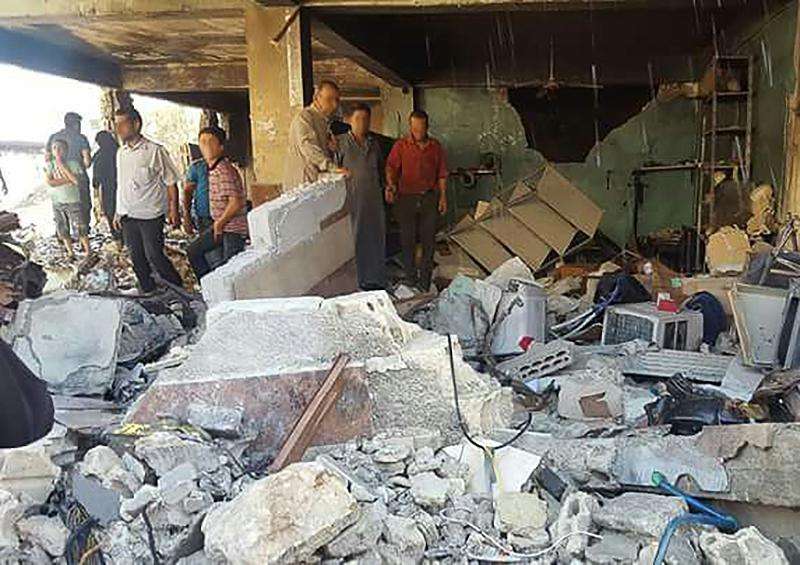BRUSSELS/NEW YORK, AUGUST 8, 2016—A busy hospital that served as a reference center for pediatric patients in the town of Millis, in Syria’s Idlib governorate, was destroyed by aerial bombing on Saturday, killing 13 people and depriving 70,000 people of essential medical care, according to the international medical humanitarian organization Doctors Without Borders/Médecins Sans Frontières (MSF), which provides support to the facility.
Two aerial strikes hit the hospital directly and two hit the immediate vicinity at about 2 p.m. local time, killing four hospital staff members and nine other people, including five children and two women. Six other members of the hospital staff were wounded.
The bombing destroyed the hospital’s operating theater, intensive care unit, pediatric department, ambulances, generator and about 80 percent of the medical equipment, forcing the facility to close. Specializing in pediatrics, the hospital provided essential care for around 70,000 people living in Millis and the surrounding area, where a considerable number of displaced people have moved to escape fighting elsewhere in northern Syria.
The hospital provided emergency care or consultations for about 250 patients per day, many of them women and children. Since early 2014, MSF had supported the hospital with supplies and technical advice, and later with financial support for the hospital staff to enable them to continue their work.
“The direct bombing of another hospital in Syria is an outrage,” said Dr. Silvia Dallatomasina, manager of MSF’s medical operations in northwestern Syria. “We have to admire the courage and dedication of Syrian medics continuing to work in the midst of a war where hospitals are so regularly hit in bombing and shelling attacks, and we have a strong sense of obligation to support them in their essential life-saving work. Each time a hospital is destroyed, whether it is targeted or in an indiscriminate attack on civilian areas, it deprives Syrians of another lifeline of health care.”
This attack comes amid an escalation in the intensity of the conflict in Idlib governorate and an increase in mass casualty events. From January to June 2016, the two largest MSF-supported reference hospitals in Idlib governorate reported seven mass-casualty influxes, with 294 wounded and 33 dead. In July alone, the same facilities dealt with nine mass casualty influxes, with 466 wounded and 37 dead.
“We repeat our urgent call to all those with influence on the conduct on the war in Syria, including the four out of five UN Security Council permanent members that are participants in the war, to urgently effect change to stop hospitals being hit in the course of the fighting,” Dallatomasina said. “As humanitarian medics, we will continue to do all we can to support medical care in Syria, but we need to see an immediate end to attacks on hospitals.”
MSF runs six medical facilities in northern Syria and provides support to about 150 other facilities in areas of Syria that the organization cannot otherwise reach. The nature of MSF’s support includes providing medical supplies, paying a basic salary to hospital staff to enable them to focus on their medical work, providing fuel to enable the hospital generators to function, contributing to the cost of reconstruction when a facility is damaged or destroyed and providing technical medical advice. About 70 Syrian facilities receive this comprehensive package of support from MSF, and about 80 other medical facilities are supported in a less-regular fashion, with medical supply donations and technical advice when in critical need, such as after a mass casualty influx.





